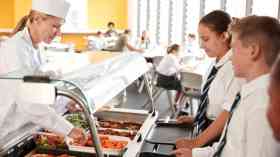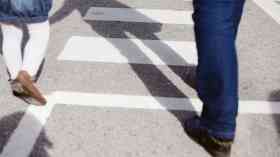School trips help schools succeed
 In addition to the multitude of evidence, there is much anecdotal support about benefits of outdoor education experiences; teachers, for example, often speak of the improvement they have in relationships with students following a trip. School trips are an important part of the wider family of outdoor learning opportunities, all of which provide beneficial outcomes to children with a wide range of abilities and issues.
In addition to the multitude of evidence, there is much anecdotal support about benefits of outdoor education experiences; teachers, for example, often speak of the improvement they have in relationships with students following a trip. School trips are an important part of the wider family of outdoor learning opportunities, all of which provide beneficial outcomes to children with a wide range of abilities and issues.
Unengaged students in particular experience events and engage socially in new and positive ways; they will learn in the real world in a manner that is not possible in a classroom. Ofsted’s 2008 report ‘How far should you go?’ concludes that well-planned out-of-classroom activities, which include trips, not only enhance pupils’ learning, but can also re-engage those who are hard to motivate. The above Ofsted report concluded that learning outside the classroom contributed significantly to raising standards and improving pupils’ personal, social and emotional development. In addition, there are a great number of research papers and evidence which highlight the benefits of taking students on trips, particularly abroad. These apply to a wide range of subjects, for example:
Primary Schools - within successful Primary Schools curriculums are enriched by first-hand experiences, including visits locally and further afield, contributions from adults with knowledge and skills that could enhance pupils’ learning, and an extensive range of extra-curricular activities.(Ofsted, ‘The curriculum in successful primary schools’ 553. 2002.)
History - wide ranging out-of-classroom activities, including school trips, are cited as examples of outstanding teaching. Students are able to appreciate their studies from a different, and usually more active, perspective. Trips to Berlin and the battlefields of Belgium are named as examples (Ofsted ‘History for all’ 0902232, March 2011)
MFL - being able to actually visit places in the countries that speak the languages students are learning is one of the best ways to immerse children and young people in the language itself. There is no doubt that it is far removed from being taught in a classroom. Young people are able to spend some time in the other country, learning much more about how the people live, work and speak as they do so.
Ski Trips- the key benefits of skiing trips for young people include physical skills and knowledge, personal and social development, the opportunity to set and achieve personal goals, environmental awareness and health / fitness.
Select Committee findings
The Education Committee undertook an inquiry into outdoor learning which recognised the cross-curricular nature of out-of-classroom learning. It found that outdoor education contributes to learning in a range of areas, including science and geography fieldwork; physical education; learning through outdoor play, particularly in the early years; history and citizenship, through visits to museums and heritage sites; art and design, through visits to galleries and experiences of the built environment; environmental and countryside education, and education for sustainable development; practical or vocational skills that cannot be practised in a classroom environment; group activities that build self-confidence and social skills; these may include adventurous activities that teach students how to deal with an element of risk, and; the use of the environment as a tool to enrich the curriculum across subject areas.
Evidence taken by the Committee strongly indicated that education outside the classroom is of significant benefit to pupils. Academic fieldwork clearly enhances the teaching of science and geography, but other subjects such as history, art and design and citizenship can also be brought to life by high quality educational visits. Group activities, which may include adventurous expeditions, can develop social skills and give self-confidence. Furthermore, the committee concluded that outdoor education has a key role to play in the social inclusion agenda, offering children who may not otherwise have the opportunity the simple chance to experience the countryside, or other parts of our heritage that many others take for granted.
Enriching the curriculum
The broad extent of this inquiry has convinced the Committee that outdoor learning can benefit pupils of all ages and can be successful in a variety of settings. We are convinced that out-of-classroom education enriches the curriculum and can improve educational attainment. (House of Commons Education and Skills Committee, Education Outside the Classroom: Second Report of Session 2004–05)
Confident Individuals: School trips can change attitudes and raise aspirations, through participation in new activities. Rising to new challenges and living alongside their peers helps pupils to become more adaptable and confident which is critical to so many areas of their development.
Successful Learners: School trips have the potential to lay strong foundations for encouraging successful learning and building positive attitudes which subsequently lead to improvements in achievement and motivation in all areas – including academic. Children also enjoy themselves so much they often don’t even realise they are learning which can help produce the greatest achievements.
Responsible citizens: Schools trips provide powerful learning outcomes for young people which contribute to a sense of belonging, feeling valued and the ability to make a positive contribution in their community and society at large.
A smoother transition: Supporting children through points of transition in their school careers can be challenging. Our courses promote personal, social and emotional development, standing them in good stead to make smooth and trouble-free transitions, whether from Primary to Secondary school, or between later key stages. This fulfils the educational mission set out by the Government and many museums, visitor attractions and destinations, and inspires students to re-visit with their families or come back in later life with children of their own. (Source: Tourism Insights)
Well Being
Improved personal and emotional well-being: Young people become more resilient and optimistic, and their emotional health and self-esteem improve. 93 per cent of teachers agree that Outward Bound influences their pupils’ personal development, in particular their confidence and self-esteem.
Improved social well-being: The quality of young people’s relationships improves, in particular with their friends, family and teachers. 93 per cent of teachers observe better relationships between pupils on return to school.
Improved connection with the natural environment: Young people’s knowledge, awareness and appreciation of the natural environment improve. 72 per cent of teachers observe improved awareness of the natural environment in their pupils on return to school.
Improved enthusiasm and confidence in learning - their attitude towards learning improves, and they become more confident, capable learners in the classroom. 60% of teachers observe an improvement in their pupils’ performance in the classroom on return to school
What does the School Travel Forum want to see?
Despite the known benefits and excellent safety record of school trips, the organisation of them has become unnecessarily E E burdensome and, regardless of the Government’s recent reduction of guidance for organising trips, the laws which dictate responsibilities still need consideration.
Since 2002 the School Travel Forum (STF), a not for profit organisation, has worked successfully to reduce unnecessary red tape, paperwork and allow schools to easily manage responsibilities, whilst ensuring high quality learning experiences can take place. For example, there is a need to take reasonable steps to ensure selection of reputable suppliers; how can this be achieved without detailed knowledge of the travel companies available? Last year several schools and Local Authorities were badly affected when their ski trip supplier suddenly turned out not to be so reputable.
This can be easily managed; all STF Assured Members are required to adhere to a rigorous Code of Practice which covers safety management, financial and trading standards and, importantly, they are audited annually for compliance by independent experts. Our Code has been adopted as the benchmark for study, sports, ski and cultural tours by the Council for Learning Outside the Classroom’s (LOtC) Quality Badge, and we are proud to be one of their Awarding Bodies. The Quality Badge provides for the first time a national accreditation combining the essential elements of provision - learning and safety - into one easily recognisable and trusted award. It is for this reason that the majority of Local Authorities Outdoor Education Advisors recommend use of Quality Badged providers without further checks.
Maintaining Standards
The School Travel Forum itself does not offer tours; our role is to independently maintain standards, whilst ensuring competition is available in the market place. All members compete individually for business ensuring choice and value. Last year over 13,500 school and college groups travelled with members of the STF, a growing total. The STF would like to see two simple actions: Firstly, wide-spread and vocal advocacy for the real educational benefits brought by all forms of Learning Outside the Classroom, including school trips. Secondly, all schools organising school trips to demand the high standard of STF Assured Membership from their suppliers.
About the School Travel Forum
Since its inception the School Travel Forum has won widespread recognition and support for the way it simplifies and provides essential reassurance for leaders looking to organise study, sports & ski trips. The STF initiative has won the support of the ASCL, ATL, NAHT, NUT and Voice. It is welcomed by the Outdoor Education Advisors Panel (OEAP) and the DCSF, and NASUWT advised members wishing to organise school trips to use companies that had this type of scheme.
Teachers using an STF Assured Member can be secure knowing that their travel partner understands and facilitates the needs of educational travel, manages safety effectively, offers fair terms and condition, and the best financial security and Is fully inspected every year by independent experts.
Further information
www.schooltravelforum.com
Latest News
01/12/2025 - 10:30
The Scottish Government has announced the projects to receive a share of £12 million to help public buildings become more energy efficient and cut carbon emissions.
01/12/2025 - 10:20
All state primary school children in London have been offered free school meals since September 2023.
28/11/2025 - 09:38
Ofsted has confirmed plans to change inspections of local authorities’ children’s services (ILACS) in 2026 and 2027, including removal of overall effectiveness judgement from April 2026.
27/11/2025 - 11:53
Ofqual has published revised statistics on access arrangements for GCSEs, AS and A levels, alongside new research into the role of time pressure in assessment.
26/11/2025 - 15:22
The announcement follows an earlier pledge of £10 million in funding to provide every primary school in England with a library by 2029.







